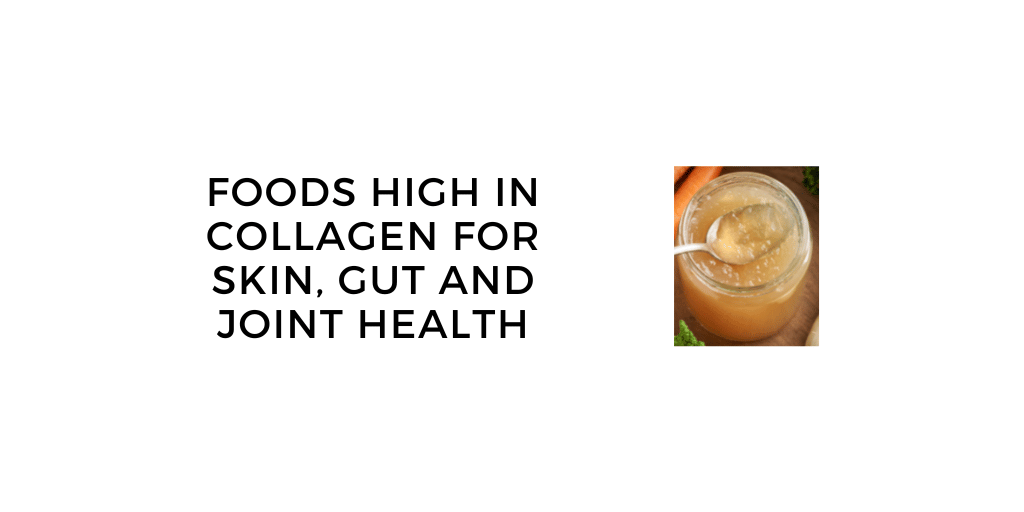
Foods High in Collagen: 12 of the Best Collagen Foods for your Skin
Foods High in Collagen
You want to know which foods are high in collagen so you can improve your skin, gut and joint health. Or maybe you know it's good for you and just want to feel better. The problem is that most articles on the internet don't give you accurate information.
They simply recycle the same bs by telling you things like eggs, steak, dairy, chicken breast, beans, berries and spirulina are high in collagen. I'm here to tell you they are not.
It's time to set the record straight. I've compiled a list of 12 foods that are actually high in collagen based on their nutrient data.
But before we dive in, I'll give you the (too long, didn't read) version or cliffs notes. The number one best food for collagen is bone broth. A high protein one will give you 10 grams per serving.
But you can't just buy anything you see at whole foods or on Amazon, that is why I recommend Bluebird Provisions. It actually has the protein and collagen, unlike most others.
What foods are high in collagen?
Foods that are high in collagen are high protein broths, shellfish, fish, animal skin (chicken, pork), slow cooked meats (short ribs), meats with bones like ribs and oxtail and tough, grisly cuts of meat like roasts and flank steak.
This is basically a list of foods that are not all that desirable to eat in the 'west.' Unfortunately, the way we eat is impacting our health... shocker right. I think that the trend of eating more lean muscle meats (think steak and chicken breast) sacrifices our longevity because we are lacking collagen in our diet.
So the best thing you can do is eat nose to tail and always eat the skin. Anyone who tells you that you can get it from algae, lean meats or vegetables doesn't know how amino acids work.
It's important to note that collagen turns to gelatin when it's heated, so even if the collagen itself is "cooking out," the remaining amino acids still allow the body to create collagen of its own.
What food has the highest collagen?
The food with the highest collagen by weight is bone broth. You get 96% collagen in bone broth or 8-10 grams per cup.
12 Foods High in Collagen
Foods high in collagen are bone broth, gelatin, pork rinds, salmon, sardines, pork skin, chicken skin, spare ribs, beef short ribs, oxtail and chicken wings. You can also get limited amounts from shellfish like clams, mussels and oysters.
Let's go through each below to see the exact values and why you should consider eating these foods.
1. Bone Broth High in Protein
Bone broth is a type of liquid made by boiling animal bones, cartilage, tissue and ligaments to produce a rich source of gelatin, a form of collagen. Many people mock it because there is not much research directly using it.
But in 2022, a new study showed that bone broth has anti-inflammatory properties, can improve gut health and helps with joint health (1). This is due to the connective tissue found in joints and bones, though the amount of collagen can vary depending on what bones are used.
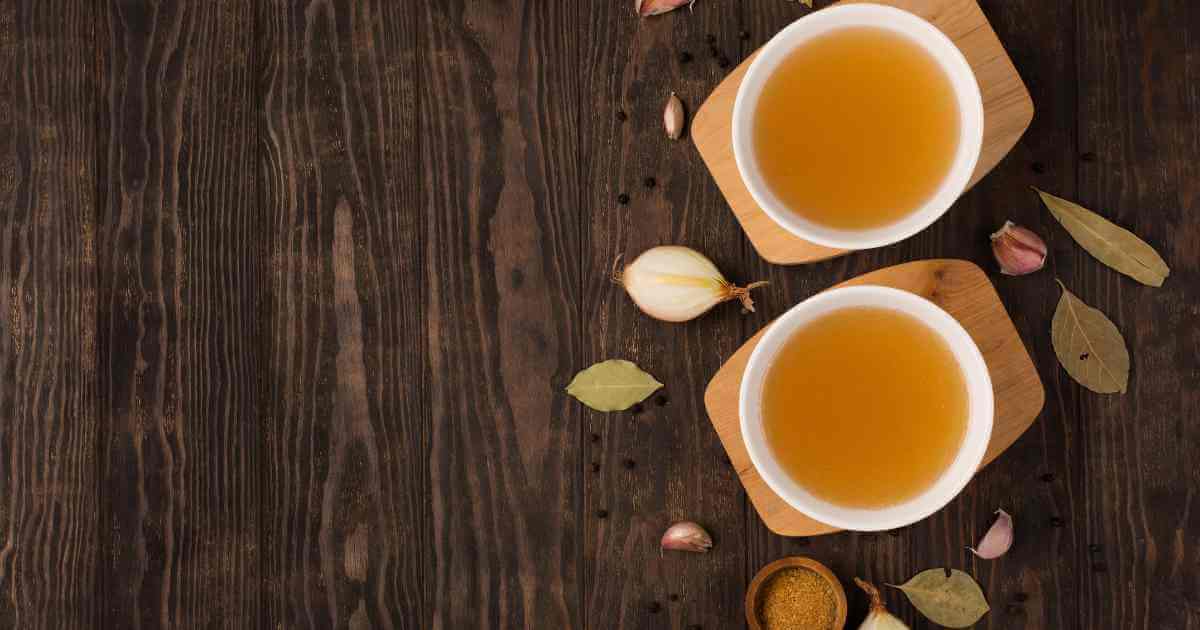
If you are buying one, make sure it has at least 11 g protein per 225 ml or one cup serving. Powder versions are ok but be wary of the salt bombs many of them are. Look for one with less than 180 mg sodium.
Bluebird Provisions ticks both of these boxes in a convenient bone broth powder format that can be found on Amazon or their website.
2. Gelatin
Gelatin is a type of protein derived from collagen, which is why it is considered one of the top collagen-rich foods available. I know it's a bit of a cop-out listing something so similar and that also comes in powdered form.
The reason why is that gelatin is excellent for cooking because of the natural gelling properties. You can use it in place of cornstarch or flour to thicken sauces, soups, gravies and stews.
Gelatin is also rich in glycine, proline and hydroxyproline, which are all essential amino acids that are needed for the production of collagen. I you want to try it, be sure to look for a grass fed and pasture raised gelatin.
3. Pork Rinds
Pork rinds are fried pieces of pork skin. They taste delicious to some people, not so great to others. The cool thing is that they are a by-product of the meat industry that previously would end up in a landfill.
They are full of collagen because they're made from skin. With about 10 grams per serving, they have more than any other snack food and most other foods period.
They're a great keto or carnivore alternative to chips and other unhealthy snacks, as they are low in carbohydrates and fat, but still provide a tasty and crunchy treat.
4. Salmon for Fish Collagen
Salmon is probably the most underrated source of collagen with 6.5 grams per 6 oz filet. Cold-water, fatty fish are also packed with vitamin D and omega 3 fats (EPA and DHA), making it among the most nutrient dense foods in the world.
Other minerals and nutrients found in salmon include sulfur, copper, potassium and vitamin C.
5. Pork Skin
Pork skin is the outer layer of fat and tissue found on a pig carcass that is left over after it is butchered. Similar to rinds, it is high in collagen because it contains a high concentration of the amino acid glycine, which makes up about 1/3rd of the protein.
This makes it an important dietary staple that you are probably unaware of. My take home point is to eat any bits of skin on your pork for better skin and gut health. Don't waste it!
Pork skin also has nutrients like zinc, iron, and vitamin B12, giving it additional health benefits for you.
6. Sardines, Mackerel, Herring, Anchovies
Fish that are high in collagen include herring, mackerel, sardines and anchovies. The later two are found in most grocery stores in cans. The trick here is to make sure you buy a can that has the skin and bones still in tact.
The way they are preserved, the skin and bones are broken down so much that you can eat them. They aren't crunchy or anything either. This is really important because that is what contains the collagen and amino acids like glycine and proline.
If you skip the bones, you'll miss out on the 5 grams of joints building collagen in the can. Other types of fish that are good sources of collagen include cod, tuna, and haddock, although they don't have quite as much as the ones listed above.
7. Chicken Skin
Eating chicken skin is one way to increase your intake of natural collagen. Buy whole chickens or thighs and breasts with the skin on. Cook it the way you normally would then eat your skin.
Since it is rich in glycine, it can help to promote collagen production in the body, resulting in healthier and more youthful-looking skin.
Studies have shown that women who take collagen supplements made from chicken skin and cartilage have seen improvements in their wrinkles, crow’s feet and skin elasticity.
Collagenous Meats
Collagenous meats are meats that are full of collagen because of the connective tissue in the meat. These are meats that typically are though to be 'tough' and need to be cooked low and slow to tenderize the meat and make it edible. Examples of collagenous meats are ribs, flank steak, roasts, short ribs and oxtail.
These are also the most delicious meats in my opinion. Let's talk about a few of these in more detail.
8. Pork Spare Ribs
I love ribs and you do too. Pork spare ribs have 3 to 4 g of collagen per serving, making them a great appetizer choice at restaurants. They are slowly cooked in their own fat until the collagen is gradually broken down and the ribs become tender.
9. Beef Short Rib
Beef short rib is a cut of beef that contains a good amount of collagen. Because of their tough nature, they need to be braised in an oven for 1-3 hours in order to soften them up.
This softening process is how collagen gradually melts into gelatin in the meat. What you end up with is a delicious, soft meat that melts in your mouth when cooked correctly. That is the gelatin melting in your mouth!
Short ribs are among the best collagen food sources with have twice the amount compared to regular muscle meats likes steak. Other good sources are lamb shanks and bone-in ribeyes.
10. Beef Oxtail
Beef oxtail is kind of similar to short ribs in that it requires a long, slow cook time to become tender. This cut of meat is especially high in collagen with 2.5 g per serving, which can help promote gut, skin and joint health.
Checkout my delicious beef soup bones recipes in this article.
11. Chicken Wings
Chicken wings can be your secret source of collagen if they are prepared with the right ingredients. The best way to make them is to fry them in lard or tallow.
Also, leaving the poultry skin on the chicken wings will also increase their protein content to 2.5 g as it is full of glycine, an amino acid that helps rebuild your gut health.
12. Shellfish: Clams, Oysters
Seafood is an excellent source of collagen, bu also the building blocks to make it in your body like copper, zinc and vitamins.
Oysters are particularly high in zinc and copper, providing 256 percent of your zinc daily value (DV) and 194 percent of your copper DV in just three oysters. This goes along with the 2 g of collagen.
Additionally, clams and mussels are an excellent source of collagen, providing 28 and 20 percent of your daily copper needs respectively. Don't sweat the details, just opt for shellfish next time. Even crabs and shrimp have more collagen than chicken breast.
Why not plant-based foods like fruits or vegetables?
You'll notice there are no vegan or plant based foods on the list. That is because collagen comes from animal skin, cartilage and connective tissue much like where we find it in our bodies.
I see lots of articles claiming that vegetable like tomatoes area great source of collagen. This is a complete joke and not true.
You can learn more about vegan collagen or the booster products to see what they are and how they fit in.
Collagen Boosting Food for Skin
Other collagen boosting foods for skin aging are things high in copper, vitamins C and E and antioxidants and anythocyanins. It is important to note that these food groups pale in comparison to what I listed above.
They can simply help with production and complement the wellness foods above. What is interesting is that these nutrients are naturally present in all of the collagen containing foods I listed above. Nature certainly knows that it is doing.
Foods High in Copper and Zinc
Copper is an essential mineral that is important for the production of collagen. If you want to increase your intake of copper, there are several foods you can incorporate into your diet.
Pumpkin seeds are a great source of copper, with one ounce containing 0.38 mg of copper, which is 42% of your daily value. Cashews are also packed with copper, with one ounce containing 0.62 mg, which is 69% of your daily value.
Let's not forget about almonds, which are a good source of copper, with one ounce containing 0.27 mg of copper, which is 30% of your daily value. You can also get it from kale, spinach, lentils, oysters, beef liver and walnuts.
These foods can help boost your natural collagen production in your joints, gut and skin so that you look and feel better.
Anthocyanins (berries) and Antioxidants
I lumped both of these together because they do similar things in the body. Anthocyanins are plants that are purple, blue and red. These vibrant colors contain antioxidants which get rid of nasty free radicals in our cells.
Foods high in anthocyanins include:
- Blueberries
- Blackberries
- Cherries
- Red grapes
- Beets
- Acai berries
These foods have a protective effect on stress and oxidative damage from sun exposure or other environmental pollutants. They're also potent anti inflammatories which can protect against chronic disease like cancer.
Foods Rich in Vitamin C and E
Foods that are rich in vitamin C and E, and can be used for collagen boosting include citrus fruits such as oranges, grapefruits, and tangerines; berries such as strawberries, raspberries, and blueberries; bell peppers; tomatoes; broccoli; kale; spinach; Swiss chard; tropical fruits such as mango, kiwi, pineapple, and guava; and cherries, grapes, avocados, apples, and pineapple.
Woah, that is a long list.
Vitamin C plays a crucial role in producing collagen, so you always want to include 50 mg or more when you take and supplements or foods to help with absorption.
What food has highest collagen?
The food with the highest collagen is a high protein bone broth. But you can't pick any broth you find in the store or online, it must have at least 11 g protein per cup or serving in order to have enough collagen. The best one for this is made by Bluebird Provisions.
Otherwise, you are wasting your money and will get none of the unique collagen health benefits.
What is the best source of collagen?
The best source of collagen is bone broth, as it is far richer in collagen protein than any other source. That being said, perfection is not always the goal. If you do not enjoy drinking it then you can eat other foods like salmon, pork rinds, sardines, oysters, ribs and chicken wings and skin. Or you can always try something in supplement form.
How can I increase my collagen naturally?
The single best way to increase collagen naturally is the lift weights. This is far and away better than supplementing or eating any foods. Weight and heavy loads are what stimulates collagen formation in your cells, skin, tendons and joints.
From here you can work on other things like stress mitigation, getting better sleep and avoiding alcohol, smoking and UV radiation from sunlight or tanning beds. Here are a few other things that help.
- Sleep: Quality and quantity are both needed. Try to get 7-9 hours per night.
- Reduce Stress: Stress can have a negative effect on collagen production, so it’s important to manage stress levels. Try activities like yoga, deep breathing exercises, or journaling to reduce stress.
- Exercise regularly: Exercise outside of lifting weights can also help because of the neurotransmitters and endorphins it releases. Aim for 30 minutes of exercise for at least three days a week. This can be brisk walking, dancing or gardening -- whatever you enjoy and can stick to.
How can I rebuild collagen in my face?
You cannot rebuild collagen specifically in your face or any other part of the body because that is not how production works. It happens on a cellular or systemic level throughout your body, all at once.
Sure, there are small things you can do like skin massages, but they pale in comparison to getting your body-wide collagen production started. Doing the things I listed above will help to restore and build it throughout your body, face included.
You also need to avoid sunburns and sun damage. This is the number one best thing you can do to avoid break down of collagen as you age.
Also, research shows that topical collagen creams do not get absorbed into your skin because the molecules are too big (2). You have to get it from food. Any moisturizers or skin care products with collagen do not work.
Does eating eggs build collagen?
No, eating eggs does not build collagen in the same way that foods like bone broth, chicken and pork skin, salmon and other fish do. This is because eggs only have around 0.5 g of collagen per egg. You would have to eat 20 eggs to get the same amount as you would in a supplement.
For this reason you should not rely on eggs.
Does banana increase collagen?
Bananas are not a source of collagen, but they can still be beneficial for collagen production when paired with the right foods. How does this work? Well, bananas are a decent source of vitamin C, which is essential for collagen production. While you can't rely on them alone, you can pair them with your supplement to help absorption.
Are eggs high in collagen?
Contrary to popular belief, eggs are low in collagen. You can only get collagen from egg shells, and most of us do not eat those, so you are out of luck.
Closing Thoughts
If you want to increase your collagen intake, there are plenty of delicious options to choose from. Add some of these foods to your diet and you'll be on your way to better skin, gut, and joint health. And don't forget to try a high protein bone broth for an extra collagen boost.
My favorite brand is Bluebird Provisions chicken bone broth powder because of the high protein, extra amino acids and no added salt. Find them online or on Amazon.
Sources
(1) https://www.ncbi.nlm.nih.gov/pmc/articles/PMC8618064/
(2) https://www.sciencedirect.com/science/article/pii/S1369702114000261

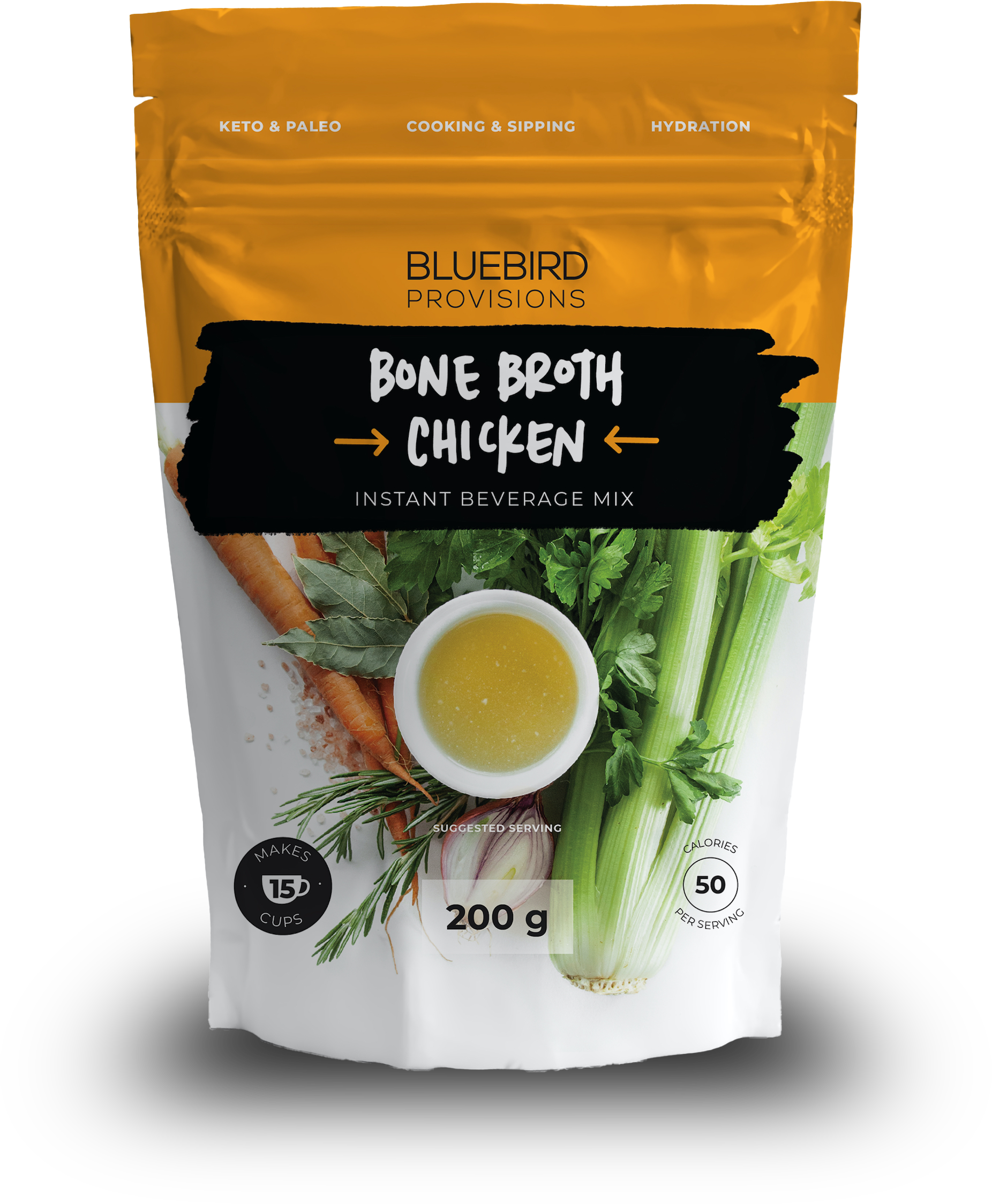
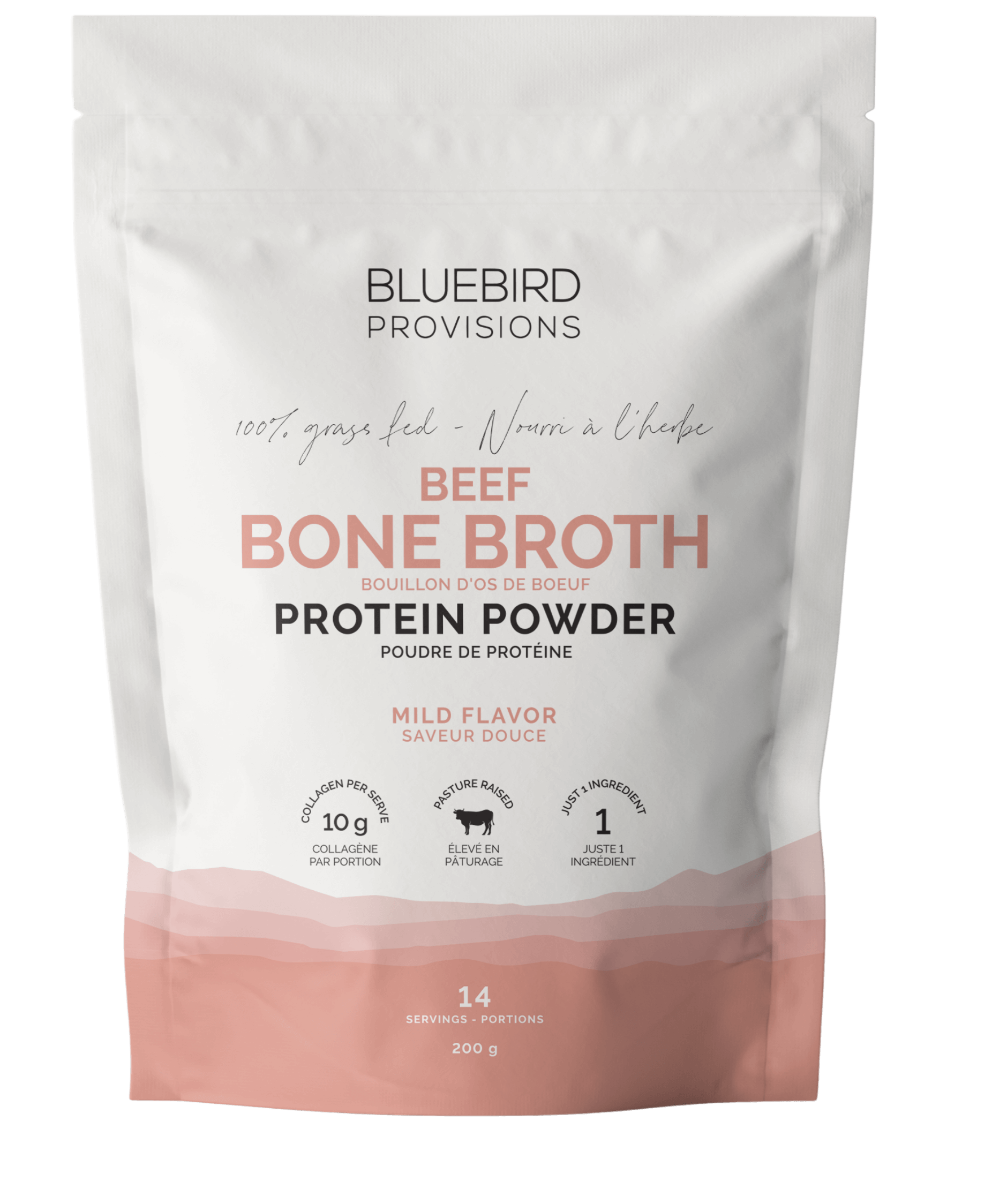
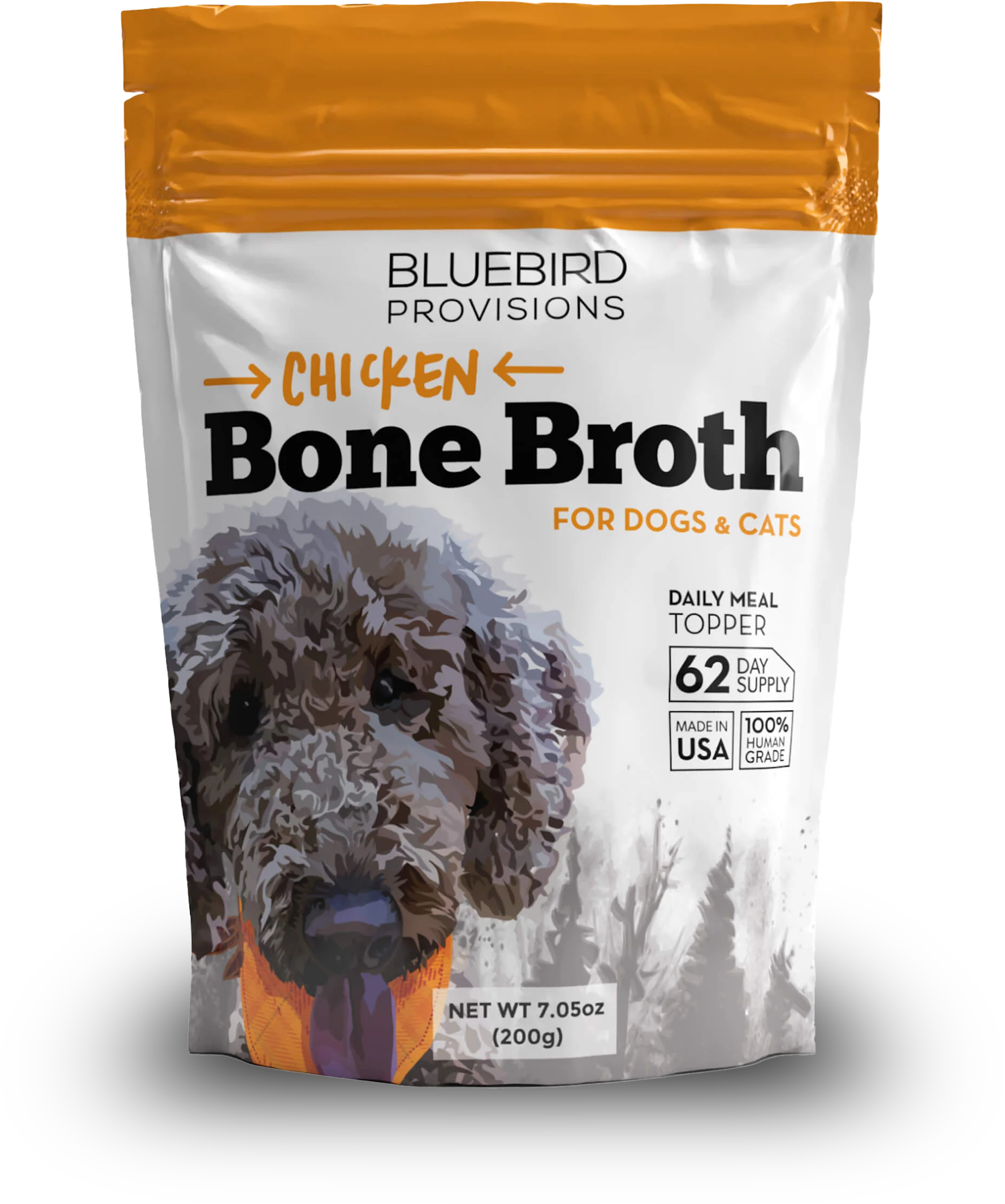
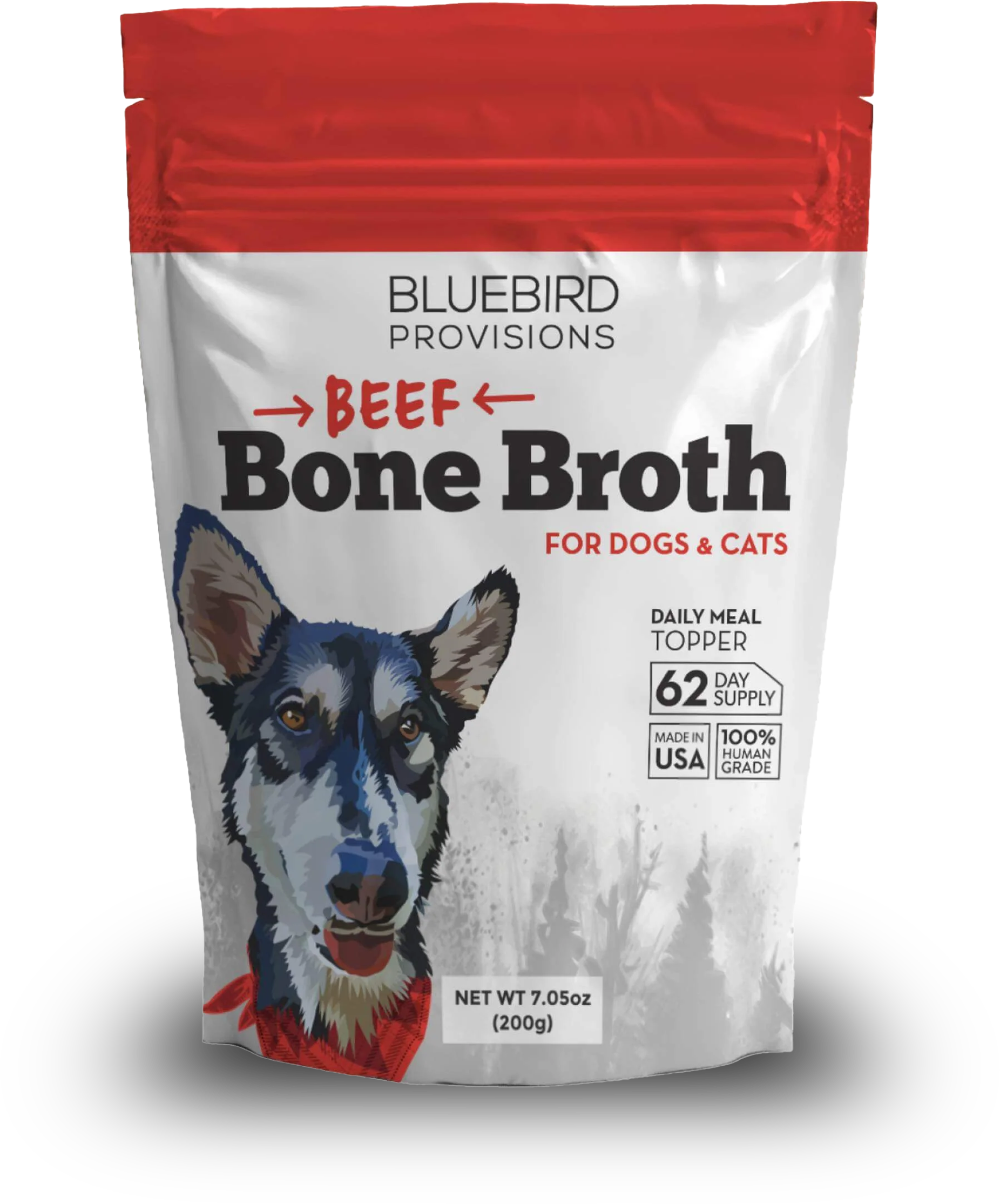
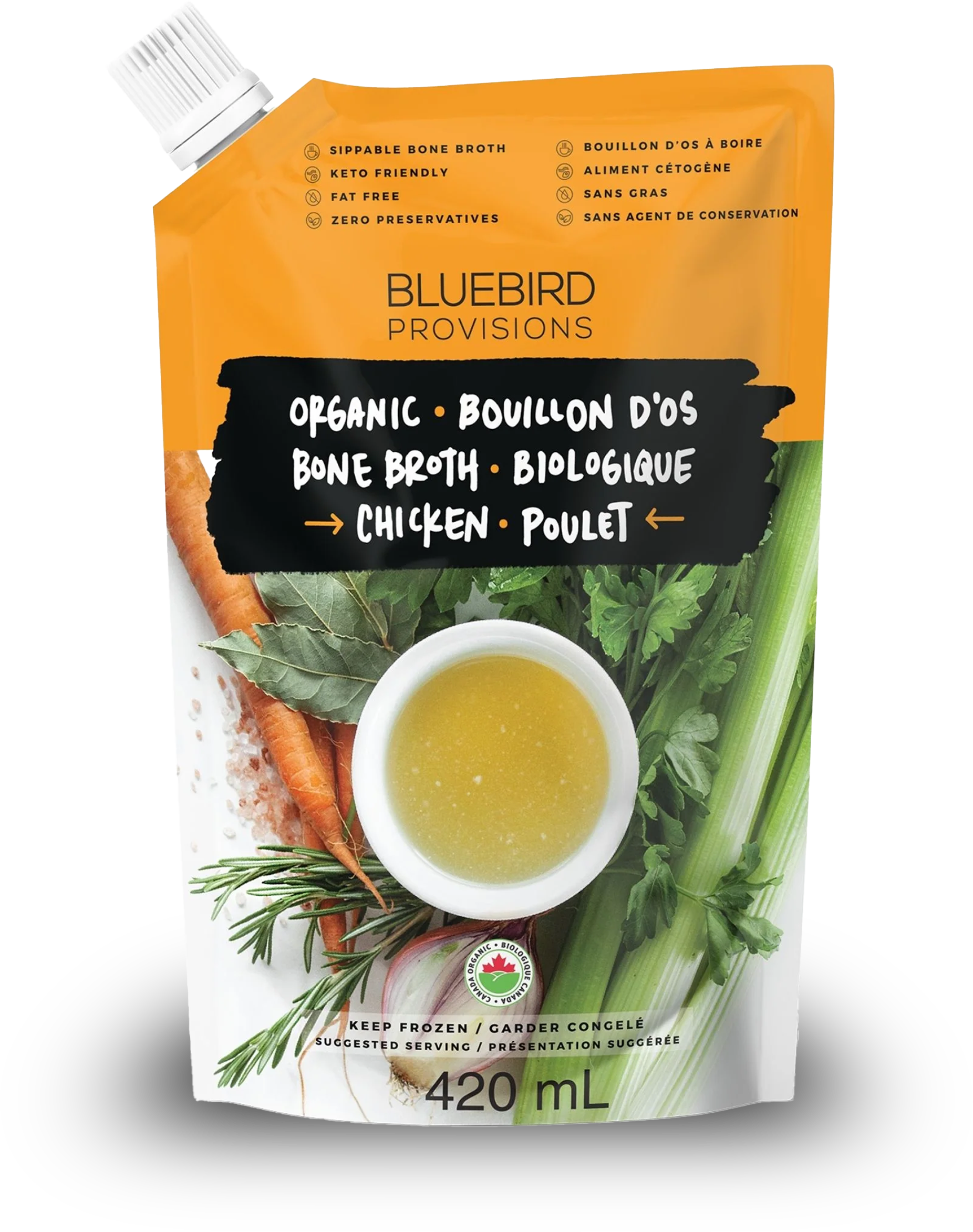
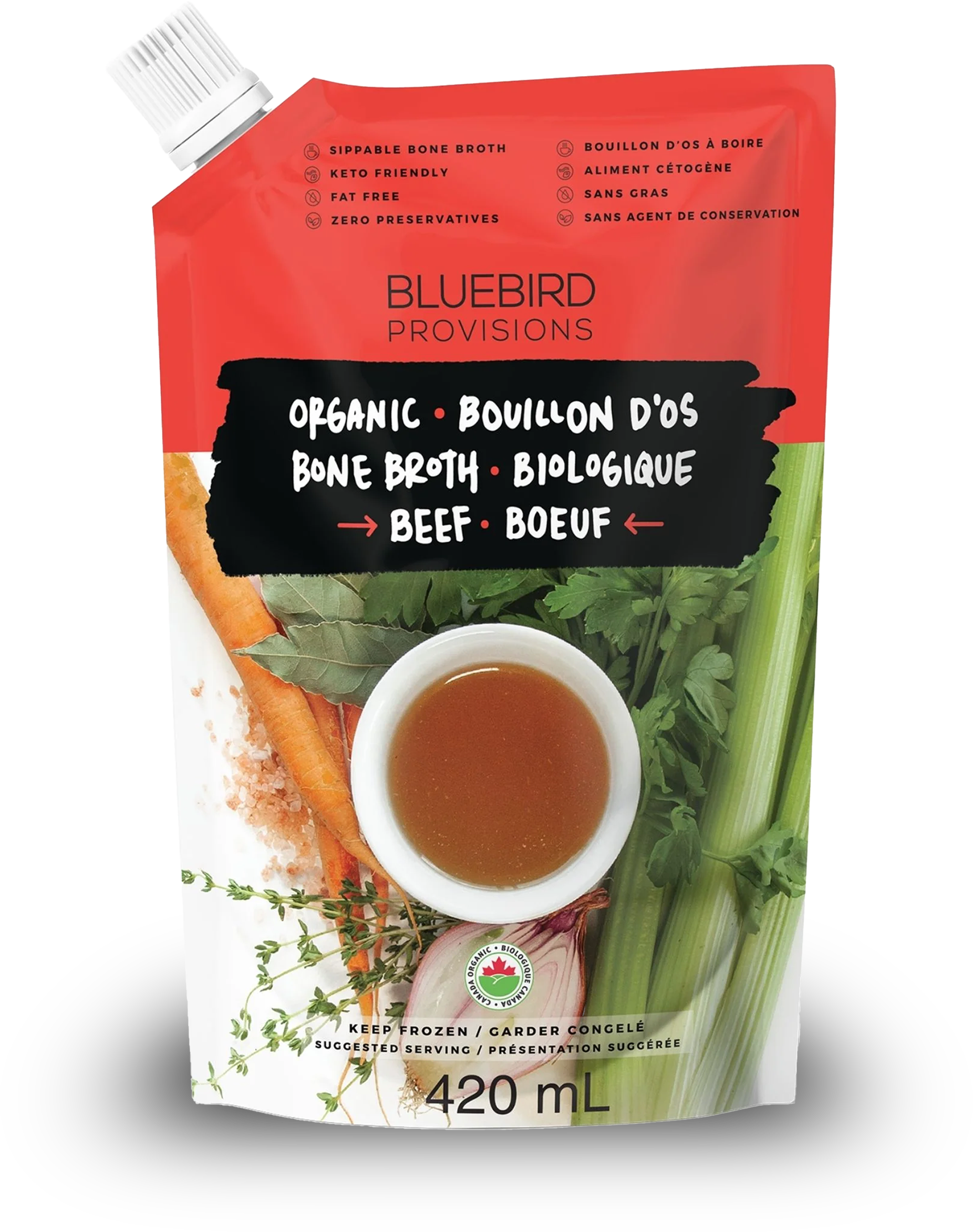






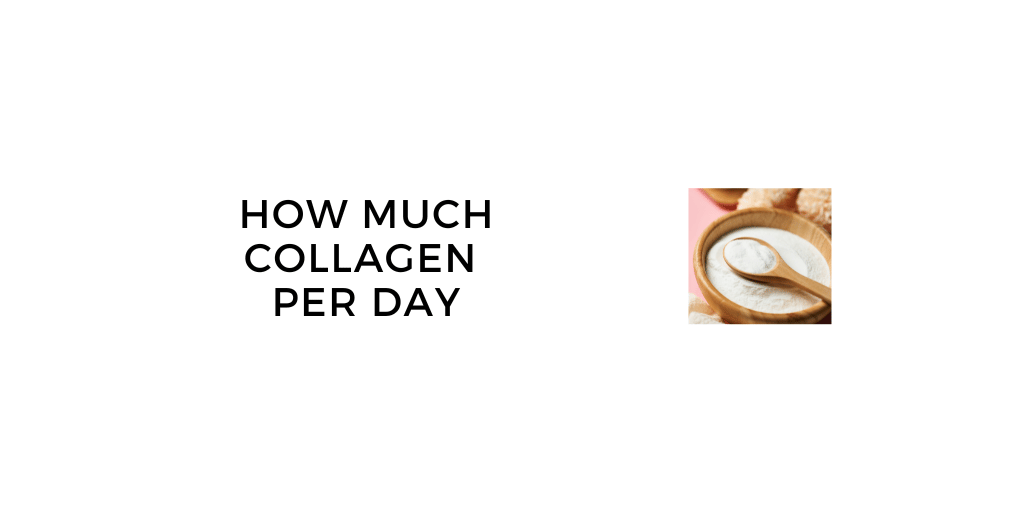
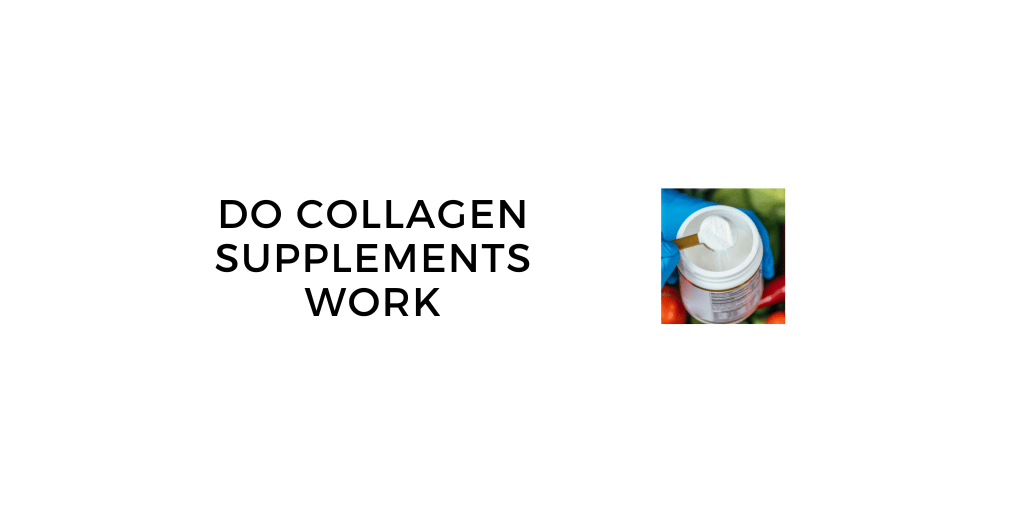
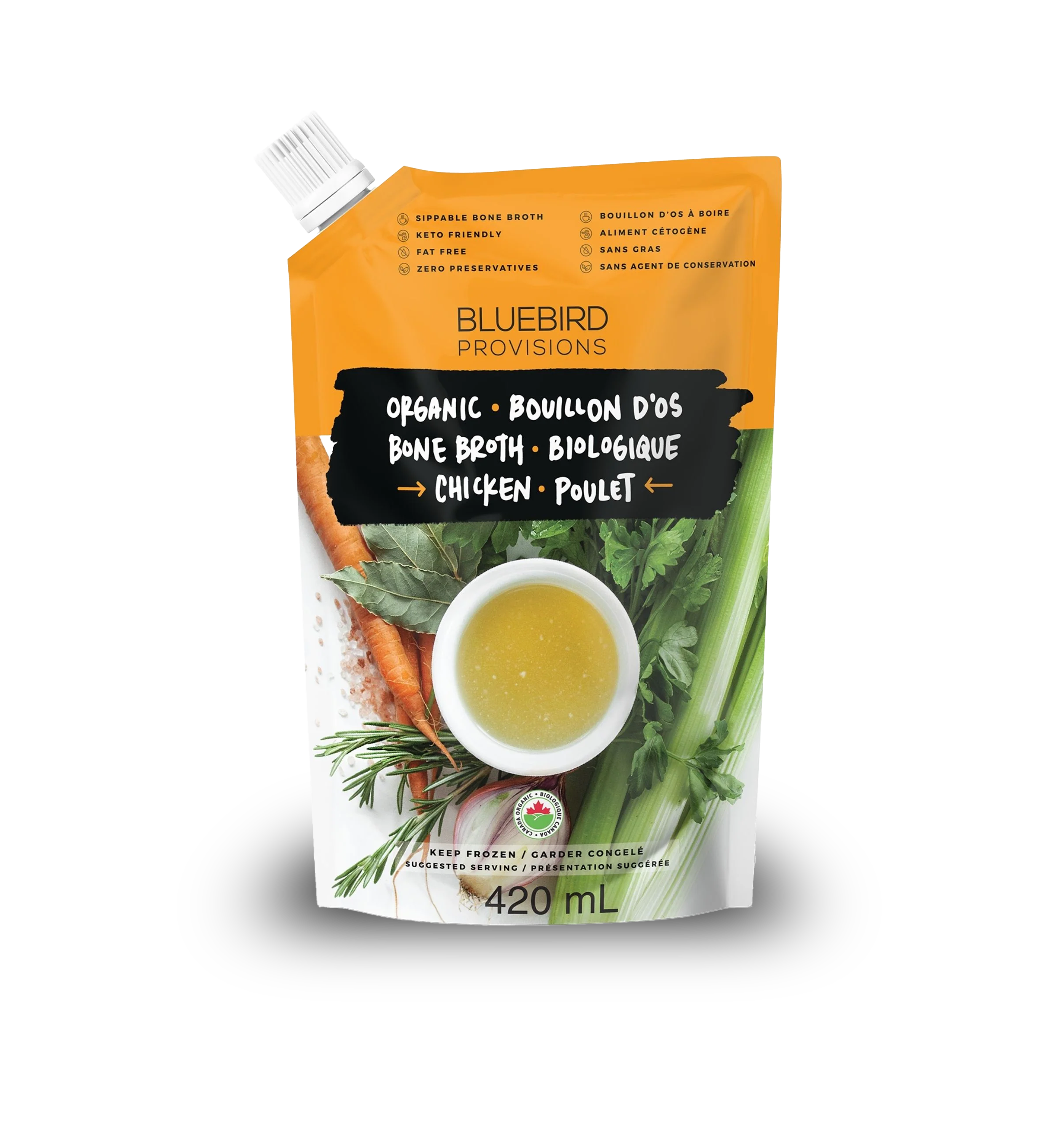
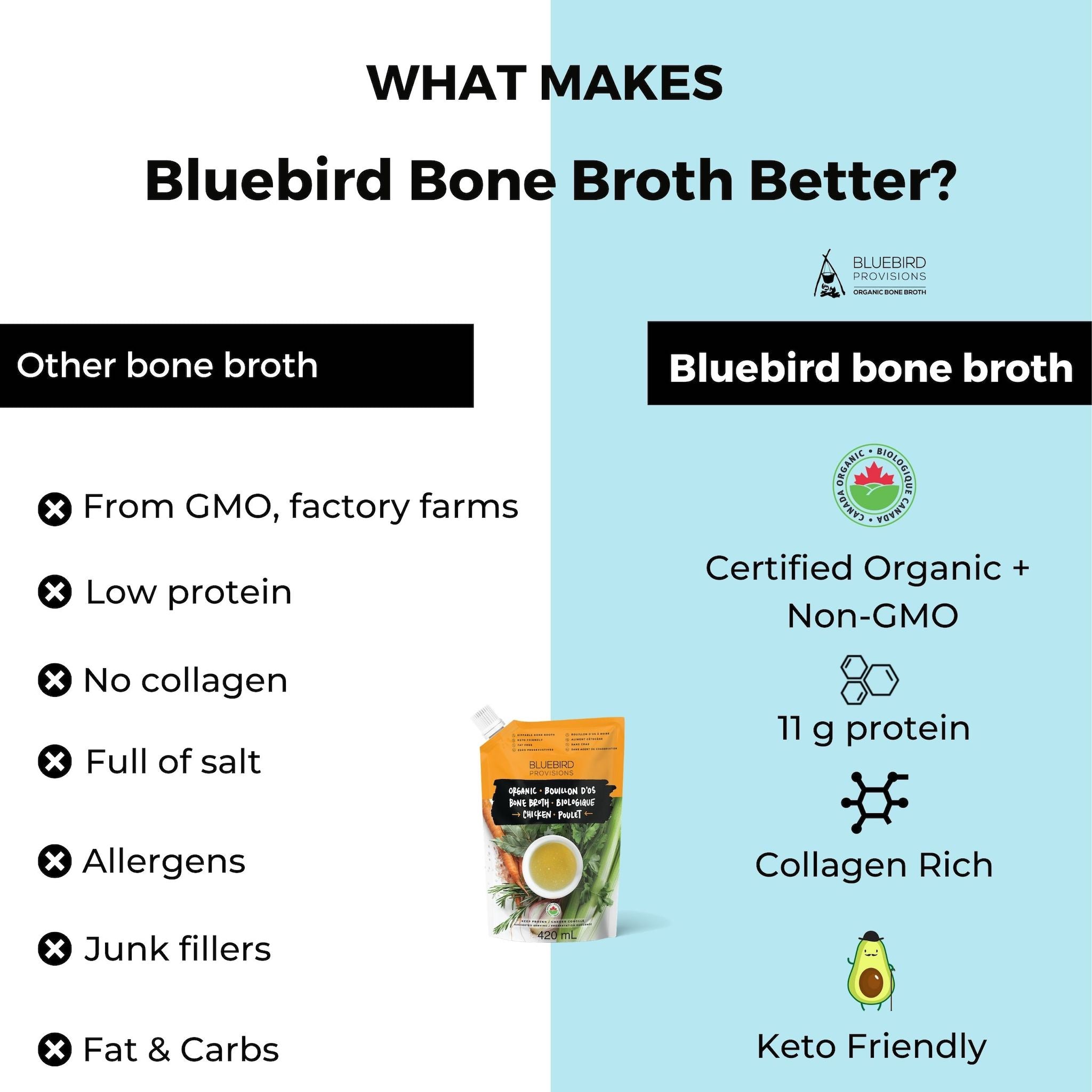
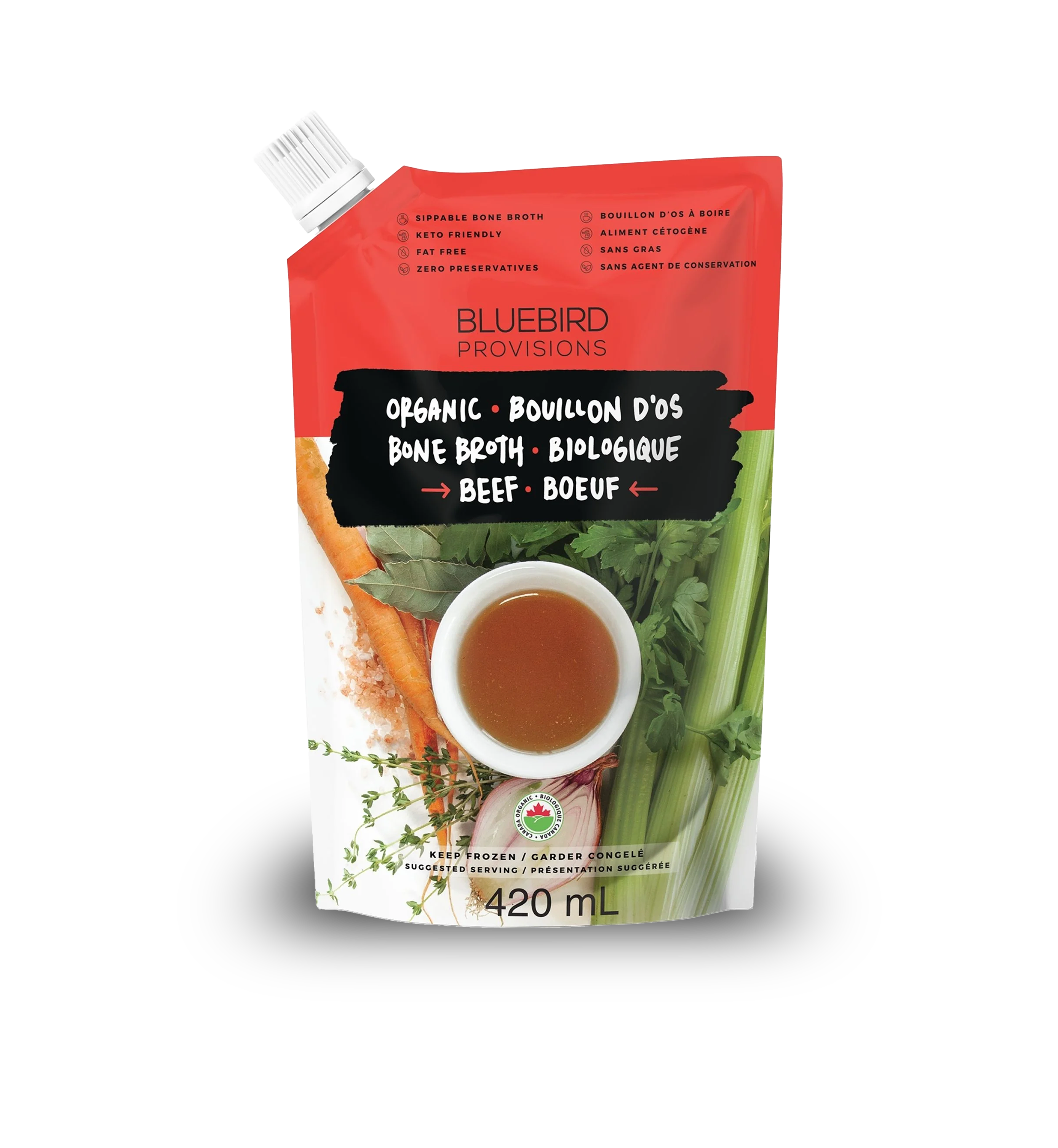
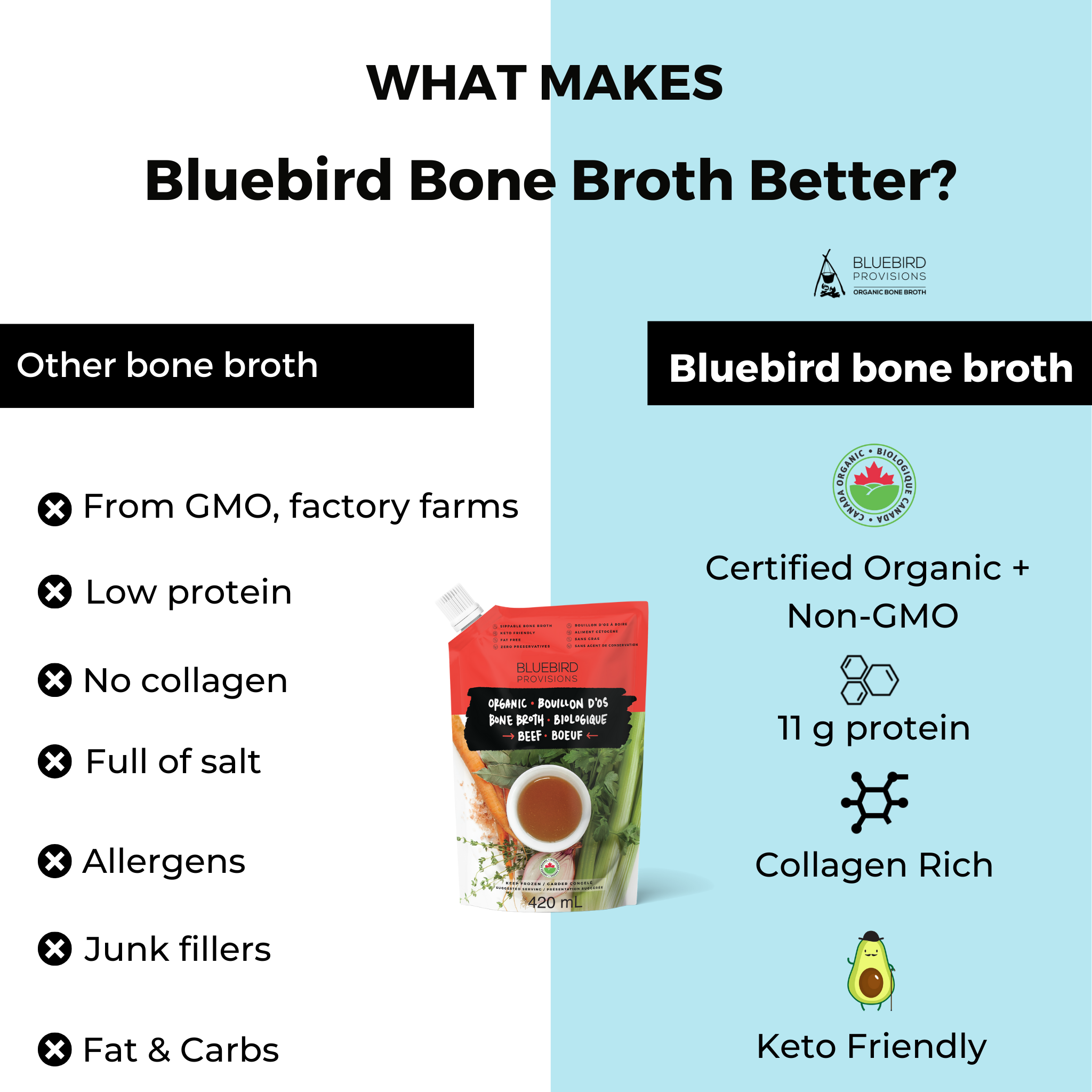
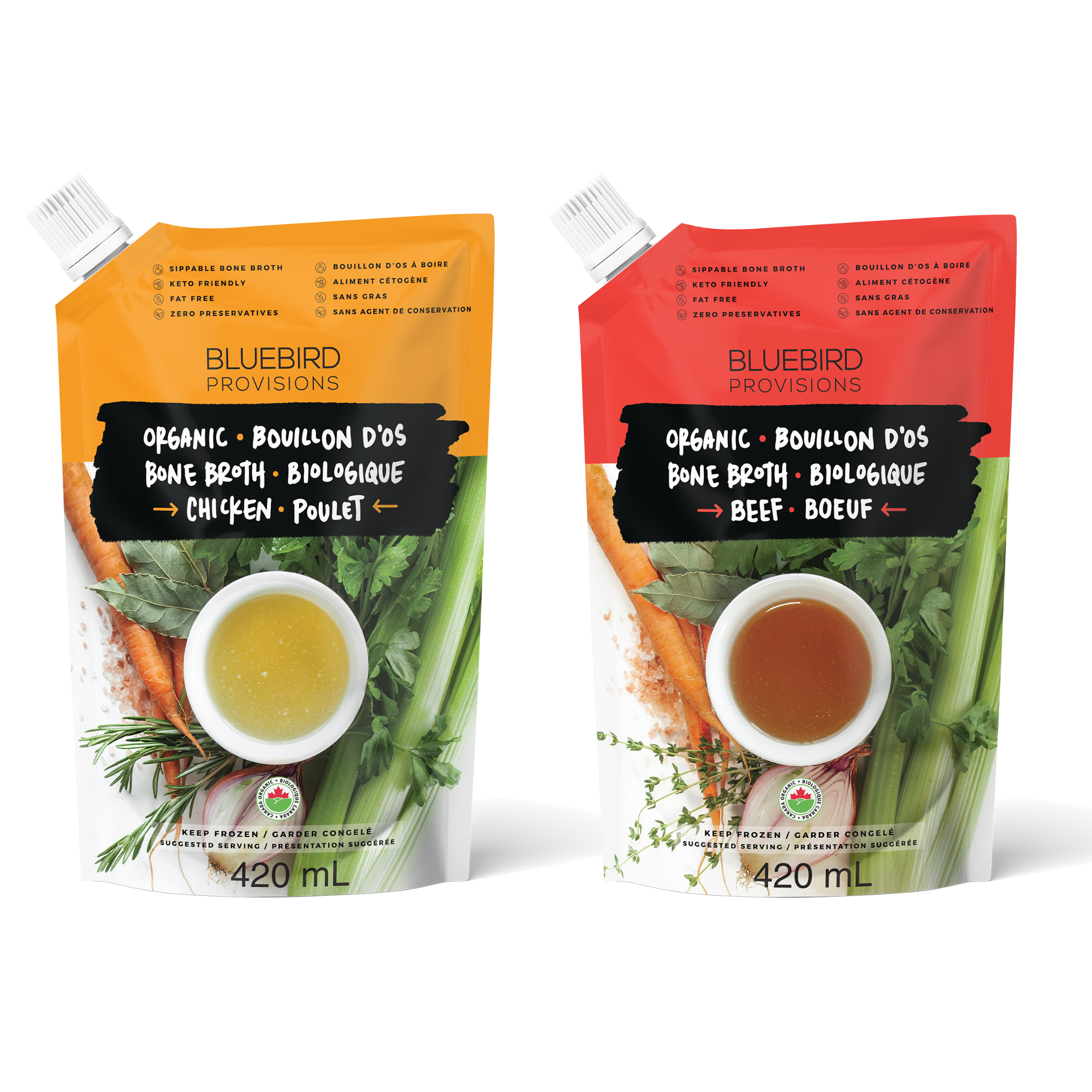
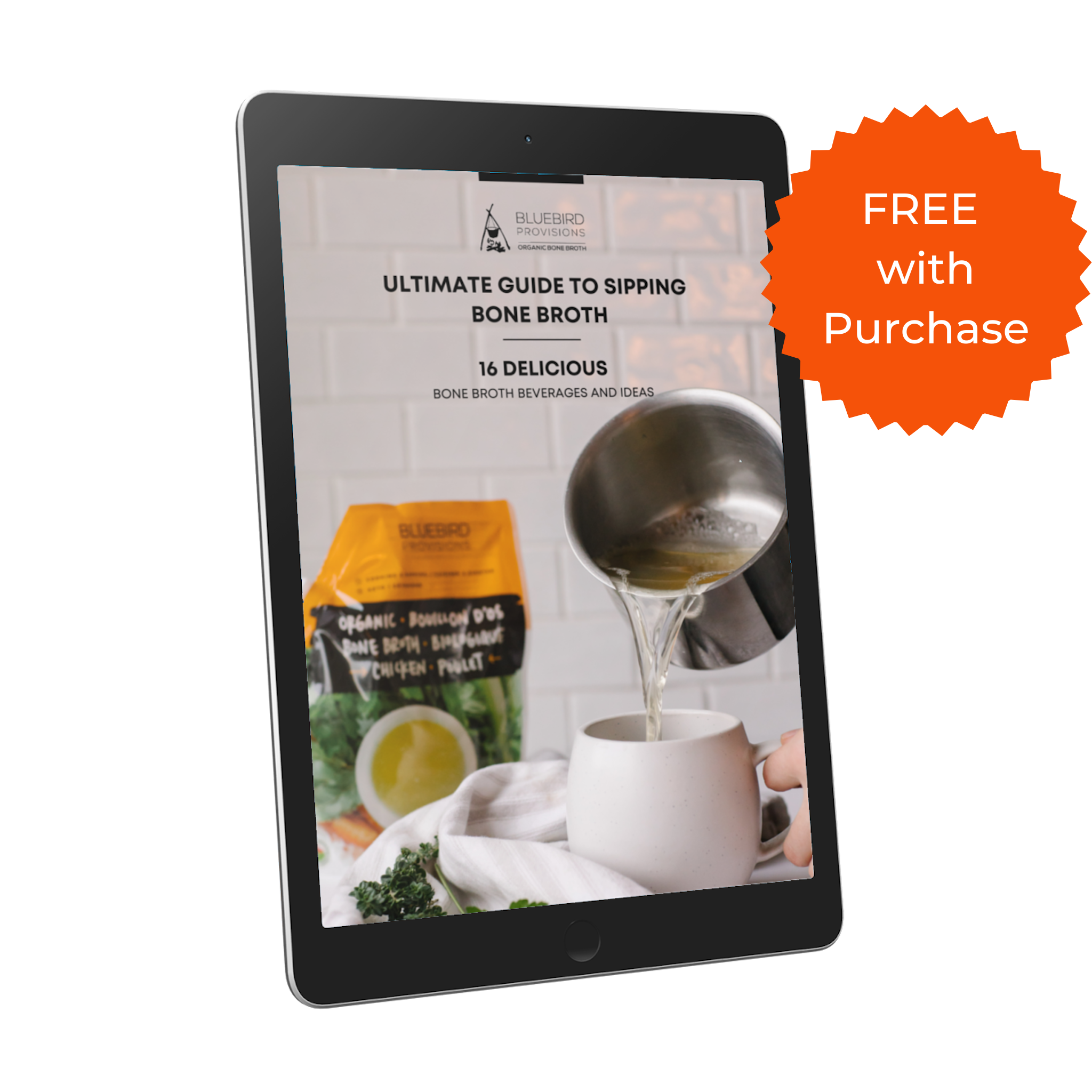
5 comments
Thank you so much for this simple and well explained explanation
Sasha Adair
Thank you so much for real truth and not the false information so many sites promote to sell something. You are helping people.
Glenn
You are a great teacher and lecturer!! Thank u very much 4yr time & the sacrifices you made for us to make really simple to understand, even if u hv brain fog. Its straight forward!! Again thanks a lot and may God bless u always.
Joan
Joan Frank
Fantastic information!!
Thank you!
Lida lewis
Thanks for writing a good article. 👍
Alex Foster
Leave a comment
This site is protected by hCaptcha and the hCaptcha Privacy Policy and Terms of Service apply.